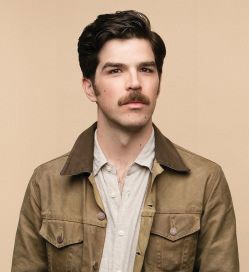Francisco Cantú has been shaped by his experiences living in a border state, taking in its natural beauty and coming to terms with the difficult questions it brings with it.
Born and raised in the American Southwest to a Hispanic family, Cantú chronicles his time between 2008 and 2012 as a member of the United States Border Patrol, as well as his insights on what the present of Mexican-American border politics is and what the future will bring, in his newest book.
His new biography “The Line Becomes a River” is an attempt to come to terms with what he experienced in those four years and what occupied his mind the most once he left. Beautifully written and just in time for the national discourse on immigration to reach new heights, “The Line Becomes a River” is a definite must-read.
Rather than structure the book as an over-political pamphlet in favor of immigration reform, Cantú instead brings his memories to life with a prose that is at times vividly poetic and at others brutally barebones. He lets his experiences speak for themselves, allowing the reader to take both his story and his opinions and understand them together, rather than making it seem as if one exists to satisfy the other.
Cantú continually returns to the atmosphere and natural beauty of the American Southwest, capturing in the first chapter his mother’s love of the outdoors and career as a park ranger. The setting is as alive to Cantú’s memory as he is, with emphasis on rock formations, wildlife and the open desert all shaping his understanding of what life in a border state means.
In a job where the heat from a summer day and a single wrong turn can kill even the most intrepid outdoorsman, elements such as the sun and weather dominate his mind, bringing the desert and the world a status of reverence, if not also fear. And while itself a political piece, Cantú does not place people into camps of opinion, or try to divide in any way the actors of his memory or of the present.
Instead, every person is real and sympathetic, with reasons for believing what they do, and informed as much as the next about how to deal with what Cantú is trying to understand more deeply.
That being said, “The Line Becomes a River” is still deeply political. Esquire called it “a must-read for anyone who thinks ‘build a wall’ is the answer to anything” and when BBC radio chose it as book of the week, they highlighted the humanitarian crisis Cantú desperately was calling attention to.
Cantú’s discussion of the border, and the actions he either participated in or witnessed, has also drawn the ire of some immigration activists, many of whom see him as profiting off of those he arrested for illegal immigration.
During a book signing event in Austin, Texas, protesters shouted him down, and rather than spar with them or remove the protesters, Cantú listened calmly, saying, “I have plenty of opportunities to speak, I have a book in the world.”
Those who accuse Cantú of glorifying tragedy, or normalizing something terrible, completely miss what makes this book so powerful. Cantú’s journey throughout “The Line Becomes a River” is about coming to terms with his actions, trying to understand what he should have done, and what could be done in situations like this across the country.
Cantú beautifully captures a journey of self-discovery and understanding that mirrors a growing national movement to discover what we value towards the border, and attempting to silence this book just because it raises difficult questions is only a sign that we are not brave enough to answer them.
Cantú will appear twice at Tucson Festival of Books, first at the Science City Main Stage on Saturday, March 10, 10-11 a.m. and the signing area, Flandrau Bookstore, Science City, following the presentation. Then, he will be at the Pima County Public Library/Nuestras Raíces/Presentation Stage Sunday, March 11, 1-2 p.m, then at the Pima County Public Library/Craft Tent signing area, following the presentation.
Alec Scott is a sophomore studying Political Science and German Studies who volunteered for the 2014 Ron Barber Congressional Campaign. Follow the Daily Wildcat on Twitter.









